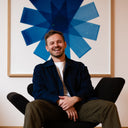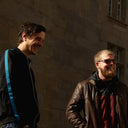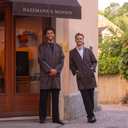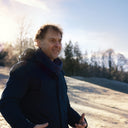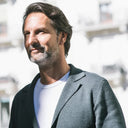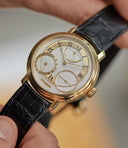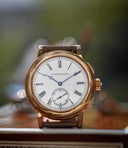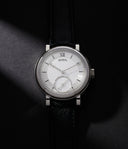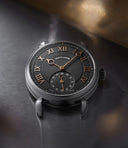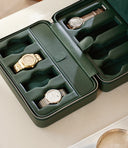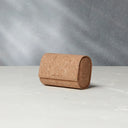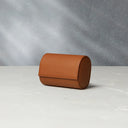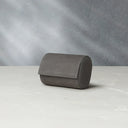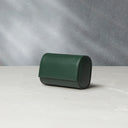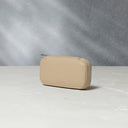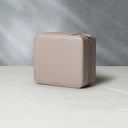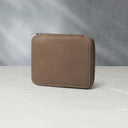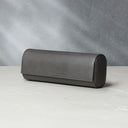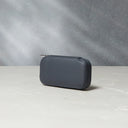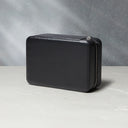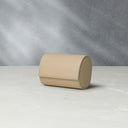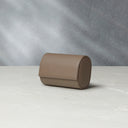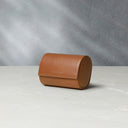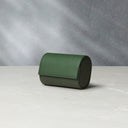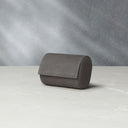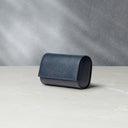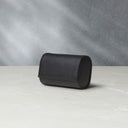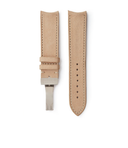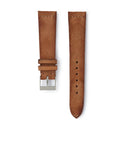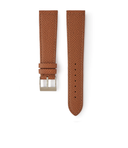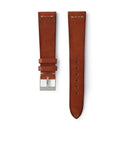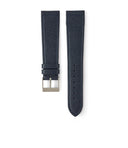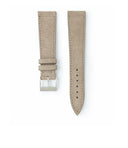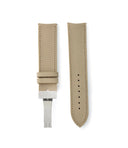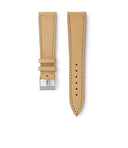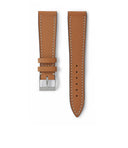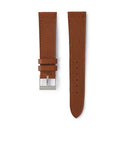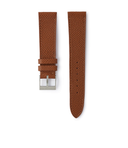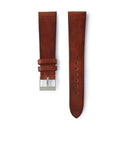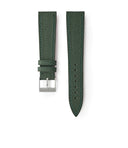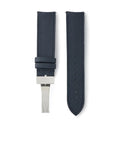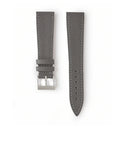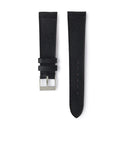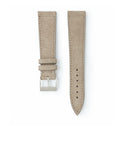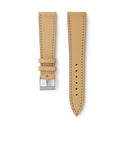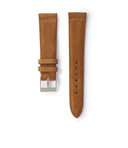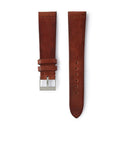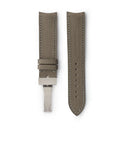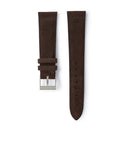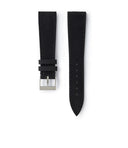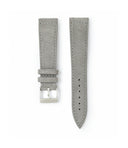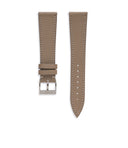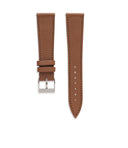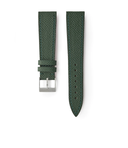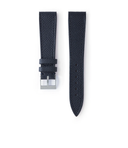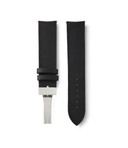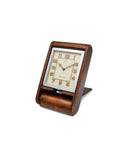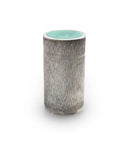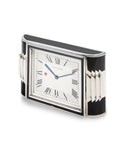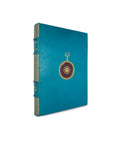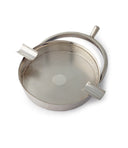
Interview: Rankin
By Josh Sims
John Rankin Waddell – better known as Rankin – is an acclaimed British photographer, filmmaker and art director. His career began in 1991 as co-founder of the pioneering style magazine Dazed and Confused, where his talent for photography truly began to be recognised. Over the last few decades, Rankin’s work has undoubtedly influenced the course of photography in the British fashion industry, although he is better known now for his insightful and good-natured portraiture – famously, he managed to get a smile out of Queen Elizabeth II.

Rankin in his studio.
Rankin’s most recent project, shot during the pandemic, is Performance – a series of portraits of key figures in London’s West End theatre district that feature in a book of the same name. We sat down with him to discuss his transition from fashion to experimental, as well as his opinion on social media, commercial photography, and art.
ACM: You’ve said before that despite being very much on the inside of pop culture, spotted at all the big fashion parties, you’ve always felt like an outsider. Why is that?
JRW: When I was younger there was a lot of imposter syndrome going on – I’m not from a creative background or family, and think there’s an element of front required to fit in. And it’s a massive part of me being working-class Scottish. My dad would say I was born a contrarian, with that chip on [my] shoulder, in Glasgow. But I think there’s an element of that just being the way you were there – you pushed at everything, you’d be inquisitive. I push at social rules – I just can’t help myself – and my parents really encouraged that confidence to say “no”. Still, even now I feel a bit uncomfortable at a fashion show and that whole idea of judging people by their clothes. As a photographer, I have to do the aesthetic thing fairly quickly so I can get through to the personality bit. I always wanted to get into people’s heads and have that come through in the picture.
Lots of the photographers you admire – Herb Ritts, Helmut Newton, Richard Avedon, and so on – have a distinctive style. Do you think you have one too?
I’ve tried to swerve away from having that as much as I can, because I’d get bored if I had a single style. I admire those photographers that do have one because the really good ones use it, I think, as a way of digging deeper and deeper into the human condition: Juergen Teller, Nan Goldin, [and] Martin Parr all go beyond the surface into something else. I’m too much of a magpie. I like skipping around and trying all different things in photography.


Rankin's work defies categorisation, not limiting himself to a single style.
There was a phase when you seemed to have fallen out of fashion photography and moved on to the more ideas-driven, experimental work you’re better known for now. Does the latter feel more ‘you’?
Well, I hate those photographers and those models who use fashion as some kind of stepping stone – who make a load of cash from it and then claim it’s all shallow, because it’s not entirely shallow. There is a lot of art within it. So when I hear models say, “Oh, I’m an actor now”, I feel… right, yeah, fuck off. Besides, you shouldn’t bite the hand that feeds you. I think it’s more that I never felt I was a very good fashion photographer. One of the first shoots I did was of Björk, and they were all talking about the jumper and I hadn’t even noticed it. To me it was just green, so looked good against a green background. I could never just do the seduction of fashion photography. I always wanted it to be about ideas, or put politics into it, and that was my Achilles heel. But I look back now and feel like I dodged a bullet. It’s too much of a bubble, that world, and it’s just not very me, which is probably why I wasn’t too good at it. I think success in that not-very-down-to-earth world would have been very bad for me. I was already an arrogant fucker anyway.
You once said that that image of youthful cocksureness has followed you around your entire career. Do you think it still shapes how people respond to you?
Definitely, yeah. People think I’m too expensive, or that I have a really bad attitude. I listened to myself in an interview the other day and thought I still sounded cocky. But it’s more I think that I’m confident, opinionated, and honest. That combination is something that people don’t appreciate all the time. You grow up, have a kid, break out of your own bubble, [and] just realise there’s more to the world than the little thing you’re doing. You start to see that the genius [of a successful piece of work] is to collaborate, not to dictate.


According to Rankin, genius and success can be found in collaboration.
It’s funny but a friend found this old clip of me and said we should post it. I said, “No way, that’s just not me anymore.” One thing I did learn from fashion was to always reinvent – always move forward. But I do still feel the need to apologise that I was a bit of a dick to some people. You know, it comes from fear and stupidity and hedonism and youth.
There’s that cliché that photographers all need a camera to hide behind. Is that true of you?
I think now no, absolutely not. I think I’ve always tried to use a camera as a window into someone’s personality – the camera acts as a means of me getting into their brain in an amazing way. I used to feel more comfortable with the camera asking the questions but, as I’ve got older, I’ve been able to put the camera down and ask away. Maybe in photos of myself I’d hide behind a camera. I hate having my photo taken. I make myself do it occasionally just to remind myself how hard it can be – to put myself in that seat and remember not to take [how challenging it can be] for granted.
Is asking questions an important part of your process with portraiture, then?
Definitely. It’s very close to journalism in the way that if you’re not fascinated by people, then you’re probably not very good at the job. Photos are lies and I’m looking for the truth – I’m trying to find out stuff about people. Of course, it’s not very deep, but that’s definitely my approach.
How did the Performance project come about?
It was suggested to me before lockdown and I thought, “Amazing idea, but no way – that’s at least 200 pictures.” I’m not sure I had the headspace for it. And then the pandemic hit. I was lucky enough to go into my spare room and just take pictures of flowers, and that 100% saved me from the whole panic of self-reflection that we all went through. It was my safety net. It was a real eye-opener to think how much I really need photography; how much I rely on it. And I saw some parallel between that and how people in the theatre need that live experience, they live to work, and suddenly that original idea seemed so strong. It was also a wake-up call to understanding just how much theatre is the beating heart of London’s West End.
You’ve said that you don’t recall much of your childhood, so what photos there are of that time have become all the more important in shaping your understanding of it. Is photography a way of remembering for you?
I don’t think of photographs as consumer objects, but as a means of capturing time. Time is this thing that sits on your shoulder if you’re a good photographer, I think. It sounds a bit pretentious, but they’re thinking of trying to capture a moment for history; trying to bottle the essence of a moment so people can see it and relate to it in the future. And so not remembering my childhood much has definitely influenced me [in that way of working]. But for me, it’s not really backward-facing so much as future-facing. And, of course, you need to be aware that you can do so much good with photography, but also so much harm – you can lie to the audience so easily with photography. It’s very easy to be a bad actor, because emotionally it’s purporting to report reality – but of course it’s not that. That’s especially true of the times we live in when everything is packaged and there’s very little room for nuance.


To Rankin, photography is the means to capture time.
Do you think personal photography has become too narcissistic?
Oh my god, yeah. I always say that with cell phones, we’ve handed people the most powerful weapons in the world and people are using it on themselves. It’s fucked up, man. I remember photographers and magazines in the late 1990s being attacked for retouching, and now we’ve handed that power to eight-year-olds. There’s the idea that when you pick up a camera you have a responsibility to yourself, your subject, and your audience – I feel that line should come up whenever anyone opens Instagram. People don’t get the power of imagery and how it makes other people feel. If you’re a professional photographer, that’s all you think about. Photography can be super amazing, but also incredibly damaging to the individual.
Do you think social media has been a boon to image making?
I think it’s too early to tell, really. It’s democratised photography – you don’t have to be educated in photography, and that’s probably not a bad thing, though when I was coming up I asked myself a lot of the moral questions – about retouching, for example; about body politics – that I don’t think are being asked in the same way now. Photography [on social media] has become so much more performative. But we’re all still toddlers in this digital revolution. I’ve been trying to get a documentary about this subject commissioned for a long time – about reality being more real than real – but there’s a resistance to the idea. I think the world is still catching up on this kind of discussion. We’re all thinking “here and now”, when the masters of it all – the Mark Zuckerbergs, with his ‘metaverse’, for instance – are 10 years ahead of us. And I wouldn’t be surprised if he has a 50- or a 100-year plan.

From personal photography to social media, Rankin believes that we have a responsibility to ourselves, to our subjects, and our audience.
Is part of the problem that people don’t take photography seriously as art?
People do say about social-media imagery, “Oh well, it doesn’t matter, it’s just photography”, and I say, “You mean the medium that we all communicate with now?” In the world of art, photography is still considered this sloppy, drunk, younger cousin – this upstart. The ease of access to photography today means it’s not taken as seriously as it might be, when people presume it’s all so easy – people think I literally just press a button, not that it’s a production that [I] thought about for a long time. And yet photography is so powerful, potentially so dangerous.
And I suppose this is compounded by some photographers, unlike you, being somewhat disdainful of commercial work…
That’s [about] deciding which club you want to be in – and it’s the one that won’t let you in. There’s this need to be “taken seriously”. But why? The thing about the art world is that it’s completely fabricated and if you can’t see that from the outside then you’re not very smart.

Unsurprisingly, Rankin holds that photography is powerful, potentially even dangerous.
Why do all my younger assistants shoot on film? Fuck knows. It makes no sense to me. They say it’s for the aesthetic, but no, it isn’t. You can recreate any aesthetic digitally. I get people saying they want to be an artist but, for me, that’s about trying to adhere to some kind of rules – and what they don’t get is that all the rules have gone out of the window. But it’s hard to tell some people these kinds of things. There’s a definite generation gap and you have to give young people a pass for being young. I remember having a bit of a run-in on one shoot with a big pop star and someone said to me, “Remember, she’s only 20.” And they were right. It’s the wisdom that comes with getting old that I really appreciate.
Our thanks to Rankin for speaking with us for this interview. Photography by Ollie Grove.







